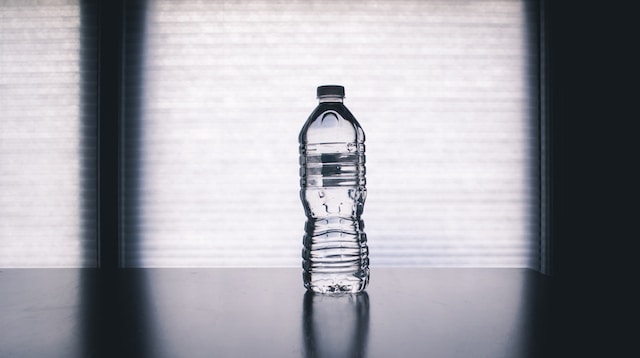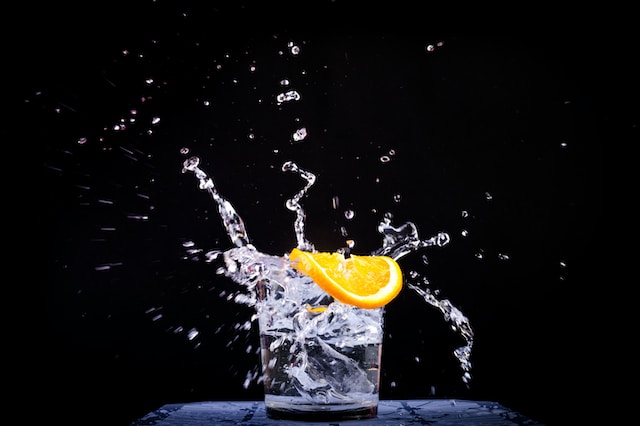Water is essential for our survival and well-being. If you’re stranded in a desert, you can survive without food for 43 days but only about 3 days without water. Yet, in the hustle and bustle of daily life, we often underestimate the significance of staying hydrated.
From physical health to cognitive function and beyond, the benefits of proper hydration are vast.
In today’s day and age, there are so many alternatives to pure water. Just visiting your local supermarket offers a dizzying choice of flavored carbonated water, regular and diet soda, and fruit juices. However, there is no substitute for plain water. It’s the first beverage we became accustomed to and one that is still a healthy choice.
The rule of thumb is to drink eight 8 oz glasses of water per day, also known as 64 ounces. But this can be challenging for many of us.
As we age, it’s even more important that we continue to drink water throughout the day. Our bodies undergo various changes, and we need to be sure that we are doing everything we need to do to stay hydrated.
Even though staying properly hydrated is crucial for people of all ages, it becomes even more vital for seniors. If we don’t drink enough water throughout the day, we can suffer from dehydration, which can lead to a range of health issues affecting both our physical and cognitive well-being.
In this comprehensive guide, we’ll explore the importance of hydration for seniors, the unique challenges they face, and practical strategies to ensure they stay adequately hydrated.

Understanding Hydration
Hydration is important for all of us, regardless of age. Water is essential for the functioning of every cell, tissue, and organ in the body. It plays a critical role in transporting nutrients, regulating body temperature, and eliminating waste products.
In addition, hydration helps us with:
- Improved Skin Health: Hydrated skin can appear more youthful and radiant – and who doesn’t want to appear young?
- Weight Management: Drinking enough water can help with your metabolism and aid in appetite control.
- Joint Lubrication: Maintaining joint health by lubricating joints and preventing stiffness.
- Digestion: Water helps to break down food and absorb nutrients efficiently.
- Cognitive Function: Improves brain function by improving concentration and memory function, reducing brain fog, and more.
- Mood Stabilization: Staying hydrated positively impacts our mood and helps to reduce stress
- Better Sleep: Proper hydration can improve the quality of sleep and also help you sleep longer
- Detoxification: Water is crucial for the body’s natural detoxification processes and helps to flush out toxins.
However, as we age, we can face challenges when it comes to drinking enough water. Some of these factors are:
- Reduced Thirst Sensation: Your sense of thirst may diminish. This can lead to a decreased desire to drink water, making it easier to become dehydrated.
- Medications: Depending on the type of medication that you take, it can have diuretic effects, increasing the risk of fluid loss through frequent urination.
- Limited Mobility: We may face mobility issues that make it difficult to access fluids or reach the bathroom in a timely manner.
- Medical Conditions: Chronic illnesses like diabetes and kidney disease can affect fluid balance, making seniors more susceptible to dehydration.
- Cognitive Impairment: Individuals with cognitive impairments, such as dementia, may forget to drink water or be unable to recognize signs of dehydration.
Are you or someone you know struggling to drink enough water due to mobility issues? Check out our guide to mobility aids for tools that can help you get back your mobility.
Signs of Dehydration
Whether you are a senior or caring for elderly relatives, detecting dehydration can be challenging because symptoms may not always be readily apparent. Caregivers and family members should be vigilant for the following signs:
- Confusion or irritability
- Dizziness or lightheadedness
- Dry mouth and dry skin
- Dark urine or infrequent urination
- Fatigue
- Sunken eyes
If you, or a senior you care for is showing signs of hydration, seek medical help immediately. Dehydration can quickly become fatal, especially in seniors.
The Consequences of Dehydration
Dehydration can have severe consequences, some of which specifically affect seniors:
- Increased Fall Risk: Dehydrated individuals may experience dizziness and weakness, increasing their risk of falls and fractures.
- Kidney Stones: Insufficient fluid intake can lead to the formation of kidney stones, a painful condition.
- Urinary Tract Infections (UTIs): Dehydration can contribute to UTIs, which can be particularly problematic for older adults.
- Cognitive Impairment: Even mild dehydration can impair cognitive function, affecting memory and concentration.
- Hospitalization: Severe dehydration can result in hospitalization, which is not only physically taxing but emotionally distressing for seniors and their caregivers.

How to Stay Hydrated
It’s crucial t for seniors to stay properly hydrated for their overall health and well-being. There are some practical ways to help you to stay hydrated.
Regular Fluid Intake
Make sure that you drink water regularly throughout the day, even if you may not feel thirsty. For caregivers, ensure that you encourage seniors to make sure they are drinking water during the day.
Caregivers may even want to set alarms for fluid intake. This sounds dumb, but setting an alarm that reminds a senior to take a drink every 30 minutes can really take the pressure off.
Color Coded Water Bottles
An easy way to ensure that older adults can drink water is to purchase 2 – 3 different colored lightweight plastic BPA bottles. Then, you could designate each one for a different range of time during the day.
For example, you can have a blue colored bottle for the daytime between 8 a.m. to 12 p.m. Then a green bottle to be used between 12 p.m. to 4 p.m. Then, you could have a light yellow bottle for the evening between 4 pm to 8 pm.
This way, you would have created a schedule and an easy way for someone to make sure they keep track of the water they need to drink for the day. And it could be fun as they transition from 1 bottle to another.
Flavor Your Water
Another way to break the monotony of drinking water is to liven up the taste with low-calorie natural flavors. For example, you could have a pitcher of water and add lemon slices, cucumber, or berries the night before to create flavoring.
Then, when you wake up the next day, you would have your very own flavored low-calorie water, which is healthy and that you could transfer to your water bottles to drink from throughout the day.
Set a Schedule
Oftentimes, establishing a routine for drinking water, such as before meals or at specific times during the day, can be helpful.
Monitor Medications
Be aware of medications that may have diuretic effects and can deplete your body of water.
Discuss this with your physician to better understand the medications you are on. If this is the case, ensure that you drink water to compensate for this fluid loss.
For caregivers, have a conversation with the person to whom you are providing care to so that you can ensure they are increasing their fluid intake sufficiently to counteract any medications.
Eating Hydrating Foods
Foods with high water content, like fruits (watermelon, cucumber, and oranges) and vegetables, can contribute to overall hydration.
However, if you are diabetic, please speak with your physician to ensure that your portions are appropriate for your diet and particular situation.
Keep Fluids Accessible
Make sure that seniors have easy access to water or other beverages. Consider using spill-proof containers or straws if necessary.
Keep in mind that while a large bottle may help a senior to drink more, grip strength can lower with age. Ensure your senior has a water bottle that is comfortable for them to drink from.
Monitor Urine Color
It’s important as we age to pay attention to the color of urine. If your urine is dark, it could be the first sign of dehydration. You want the urine to be light or pale yellow, which is a sign of proper hydration.
If you are a caregiver, explain this to the person you are caring for so they understand its importance and can tell when they need to increase their fluid intake.
Be Mindful of Temperature
Depending on where you live, proper hydration becomes even more crucial. For example, if you are in Texas or Florida, the hot weather could cause you to become dehydrated far more quickly than if you were in Minnesota.
Therefore, all of us, as we age, should be especially mindful of staying hydrated to prevent heat-related illnesses.
Encourage Soups and Broths
Because fluid intake is very important, another way to increase this is by including soups and broths in the daily diet as they provide both hydration and nutrients.
Limit Caffeine and Alcohol
Not all liquids are created equal. For example, both caffeine and alcohol can contribute to dehydration – therefore, as we age, we should aim to consume them in moderation.
Wrapping Up the Importance of Hydration
The importance of hydration as we age cannot be overstated. Proper hydration is not merely a matter of quenching your thirst – it’s a cornerstone of overall health and well-being. From physical vitality to mental clarity and emotional stability, the benefits of staying hydrated are far-reaching.
Dehydration can lead to a host of health issues and negatively impact quality of life. By understanding the unique challenges of dehydration, we can implement practical strategies to promote hydration.
This can help us to stay healthy, active, and well-hydrated to enable us to enjoy life to the fullest, even as we enter our senior years. Staying hydrated is such a simple, and yet powerful way to support our well-being and vitality.
So, make it a daily habit to prioritize your hydration and raise a glass to a healthier, more vibrant you. Your body will thank you for it!
Are you a caregiver and need more help providing care? Take a look at our Resources for Caregivers for ideas!


















